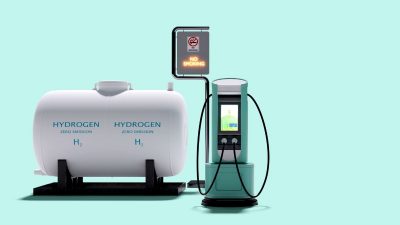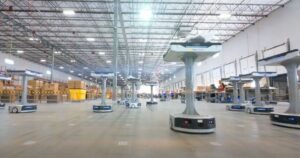The transportation sector stands at a crossroad as the reign of fossil fuels is waning. Thanks to global events like COVID-19 and climate change, governments are committing to adopt hydrogen-based economies ahead of the 2030 petrol and diesel ban.
But how are alternative fuels shaping the future of transportation? And how will it assist with the ambitious environmental targets rolled out by governments and businesses?
A recent study by Venson titled ‘The road to tomorrow starts today: The future of alternative fuels in commercial transportation’ aims to address those questions.
Shift to alternative fuels
The scope of alternative fuels is broad. It is essentially any type of fuel derived from sources other than petroleum, ie., a fuel that is not reliant on fossil fuels.
This includes but is not limited to electricity, biofuels, compressed natural gas (CNG), liquified natural gas (LNG), nuclear energy, and hydrogen.
Going beyond the environmental impact of shifting to green alternatives, the low carbon economy in the UK is worth a staggering £200 billion ($250 billion). As per the report, this incorporates 75,000 businesses while providing jobs for more than 1.2 million people.
For context, the UK’s construction industry is only worth £133 billion ($167 billion), while manufacturing is worth £56 billion ($70 billion).
Alternative fuel in transport
Heavy transport would require CNG and LNG fuels. CNG is produced by squeezing natural gas, primarily consisting of methane, to less than 1% of its original volume at standard atmospheric pressure.
LNG is produced when natural gas is purified and chilled to -164°C (below its boiling point), which changes it into a liquid. Due to its density, it’s capable of longer travel ranges, making it ideal for haulage and cargo transport.
And then there’s hydrogen, the perfect alternative fuel for commercial vehicles. It’s abundant, energy dense, highly combustible, and has been around since the 1800s. In addition, vehicles powered by hydrogen fuel cells run on electricity.
Hydrogen fuel cells are truly fascinating, when you think about it. When hydrogen gas mixes with oxygen in a vehicle’s fuel cell, it sparks a chemical reaction that creates electricity. But unlike burning fossil fuels, it leaves only water as a byproduct.
Because hydrogen has a higher energy density than fossil fuels, vehicles powered by hydrogen can achieve longer ranges before it runs out of power. Additionally, refueling a hydrogen fuel cell vehicle is also faster than recharging an electric vehicle’s battery.
Overcoming challenges
There are many challenges to overcome, of course. With the world barreling towards the goal of achieving net-zero carbon by 2050, we do not yet have the proper infrastructure in place to support a fully emissions-free future.
While the adoption rate in the commercial sector is promising, the path to wider acceptance hinges on the expansion and modernization of infrastructure – this includes everything from refueling stations to maintenance facilities.
Cost is another significant factor associated with transitioning to alternative fuel systems. This includes the costs of expanding infrastructure but also to upgrade existing transport and logistics systems.
Thus, it’s essential for both government and private sectors to collaborate and provide incentives for businesses to adopt greener technologies.
The bigger picture
The decade ahead is poised to be as interesting as it will be transformative. With governments spearheading green initiatives, we are on the cusp of possibly the biggest shift the transportation industry has seen.
The evolution towards alternative fuels promises to reduce carbon emissions while also redefining efficiency and sustainability.
One thing is certain: a greener future in transportation is now attainable. And the next phase will transform the transport sector into a smart and efficient lean green machine, ushering in a sustainable legacy for generations to come.
About the author
Cheryl has contributed to various international publications, with a fervor for data and technology. She explores the intersection of emerging tech trends with logistics, focusing on how digital innovations are reshaping industries on a global scale. When she's not dissecting the latest developments in AI-driven innovation and digital solutions, Cheryl can be found gaming, kickboxing, or navigating the novel niches of consumer gadgetry.











